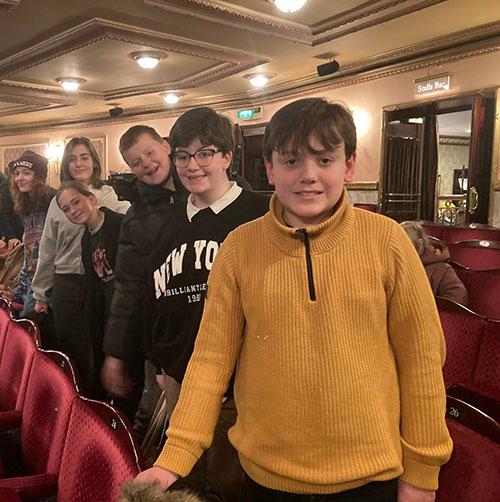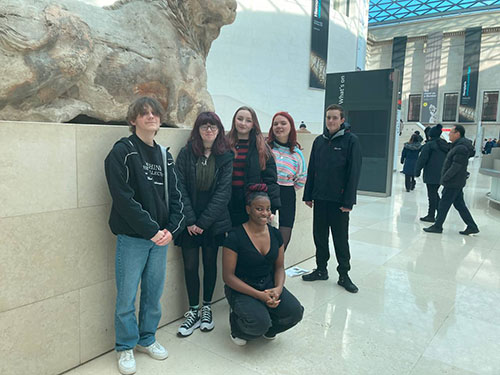London Theatre Trip
“You never really understand a person until you consider things from their point of view.” Harper Lee
Following weeks of planning, the long-anticipated trip to London’s West End took place on Wednesday 18th January 2023. The purpose of the trip was not only to provide our students with an intellectual, cultural and social experience, but to see former student, Ellis Howard taking a lead role in the West End production of To Kill a Mockingbird at The Gielgud Theatre.
Miss Ryan, (Drama teacher) who organised the trip orchestrated a wonderful experience for the students, against the backdrop of numerous rail strikes.
The group was also able to visit the British Museum, lunch at an iconic West End restaurant and a great deal of fun visiting the Lego shop, and M&M’s sweet department.
The college students found the experience deeply rewarding and all agreed that the play had a most important message for both the people of the day it was written for and society today.
After the performance students and staff went to the stage door to meet Ellis and other members of the cast.
The college was delighted to receive a communication from Ellis, in which he said, “thank you to all at Archbishop Beck for the support given not only for coming to see this production, but also to all the wonderful staff at the college for the support given to me over many years whilst a student.“
The Plot
To Kill a Mockingbird, Novel by Harper Lee, published in 1960.
It is set in the fictional town of Maycomb, Atlanta, during the Great Depression. The protagonist is Jean Louise (“Scout”) Finch, an intelligent and unconventional girl who ages from six to nine years old during the course of the novel. She and her brother, Jem, are raised by their widowed father, Atticus Finch, a prominent lawyer who encourages his children to be empathetic and just. When Tom Robinson, a Black man, is falsely accused of raping Mayella Ewell, a white woman, Atticus agrees to defend him despite threats from the community. Although Atticus’s defence is strong, Tom is convicted, and he is later killed while trying to escape custody. A character compares his death to “the senseless slaughter of songbirds,” which echoes Atticus’s comment to his children that it is “a sin To Kill a Mockingbird.”
To Kill a Mockingbird was praised for its sensitive treatment of a child’s awakening to racism and prejudice in the American South. Enormously popular, it was translated into some 40 languages and sold more than 30 million copies worldwide. In 1961 it won a Pulitzer Prize.














